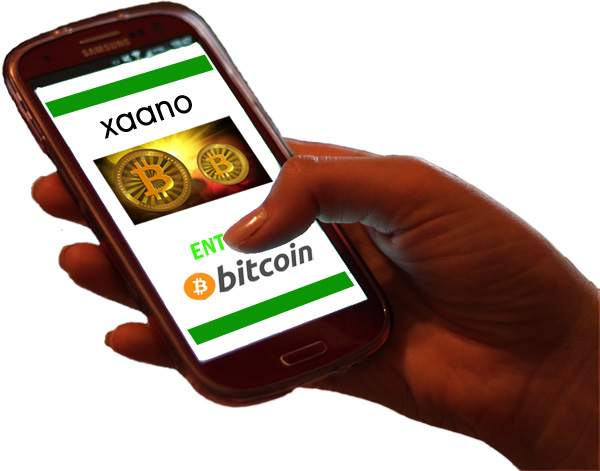The decibel level in the conversation about digital currencies in Africa jumped several notches when M-Pesa, sub-Saharan Africa’s world-leading mobile payment platform, embraced bitcoin.
The conversation has grown loud enough to spawn annual conferences such as Afrikoin, trade and advocacy organizations such as the African Digital Currency Association, blogs, consultancies, news services, and even films.
Even the stodgy Financial Times in October 2013, ran an opinion piece, “How a digital currency could transform Africa,” by Jonathan Ledgard, director of Future Africa at the Swiss Federal Institute of Technology, and John Clippinger, a senior scientist at MIT’s Human Dynamics Group and chief executive of ID3.
Sometimes described simply as cash for the Internet, bitcoin is a virtual currency that is transferred via a peer-to-peer software system, meaning users can perform transactions directly without an intermediary such as a bank or other financial service provider.
Launched in Kenya in 2007 by Safaricom, the country’s largest mobile-network operator, and used by more than two-thirds of Kenyan’s 44 million population, M-Pesa in 2013 integrated the bitcoin wallet service, Kipochi (Kiswahili for “wallet”), into its system. With their phone numbers as account numbers, M-Pesa subscribers using Kipochi may now receive funds in bitcoins, which they can convert to local currency, without incurring high bank or wire transfer fees.
Leon Kaye, editor of GreenGoPost.com, reported in a July 19, 2013, article that “one in three Kenyans and one in nine Tanzanians have a ‘bitcoin wallet.’”
For a continent that sees more in remittances each year than it sees in foreign aid—Kenyans abroad send home more than $1 billion a year, Nigerians more than $10 billion—the impact of digital currencies like bitcoin could be as explosive. Advocates say bitcoin and other digital could dramatically slash revenues of money transfer services like Moneygram, Western Union and Paypal.
“It’s gaining a lot of ground for many different reasons. It does make for amazing opportunities for people to change their condition overnight,” international digital currency strategist Rik Willard told AfricaStrictlyBusiness.com in a telephone interview. “As Africa becomes more tech savvy—in Nigeria, Kenya, South Africa—we’re finding communities centered around bitcoin and digital currencies in general literally popping up overnight. The impact that this can have in emerging markets, in Africa in particular, is extraordinary.”
Willard is the CEO of RULE7MEDIA L.L.C., the parent company of ON21, which is organizing next month’s “Digital Currencies and the Africa Economic Evolution” forum in New York City, in partnership with the National Minority Business Council’s Global Entrepreneurship Center and with support from BNY Mellon. The forum is the second installation of ON21’s “Digital Currencies in Emerging Markets” discussion, and is set to take place on Feb. 4 at BNY Mellon’s headquarters in lower Manhattan.
Elizabeth Rossiello, CEO and co-founder of BitPesa, a Kenya-based remittance platform using the Bitcoin payments system to offer “the cheapest, fastest and most reliable way to send money to East Africa,” is scheduled to speak at the forum. [For more information and to register, go to here.]
“[Bitcoin use in Africa] is a direct response to issues like remittance, all the way to IMF debt,” said Willard, who will moderate the Feb. 4 discussion. “Remittance fees from the UK could be as high as 20 percent, in the U.S. roughly 12.5 percent. BitPesa dropped it to 3 percent using bitcoin technology.”
Blogger Michael Kimani, lead coordinator at the African Digital Currency Association and a staunch advocate of bitcoin and digital currencies for financial inclusion in East Africa, shares Willard’s sentiments.
“There are millions of Africans who suffer directly and indirectly from the present, inefficient international payment systems and networks. These networks encumber remittances, export earnings, outsourced labor payments, donations and [foreign direct investment]—money inflows into the economies of Africa that rely on unfavorable international payment networks,” Kimani wrote in CoinBrief, an online source of digital currencies.
“The present payment network is antiquated and discriminatory. African countries unfortunately rely on payments from trade relations with Europe, the United States, Middle East and Latin America. As a result of direct exclusion from the broader payment network, payments encounter friction in a long chain of correspondent banking networks that skim inbound payments through- transaction costs, commissions, conversion fees, foreign exchange fees, correspondent fees and correspondent banking time delays. On the very end of this chain, are hardworking African farmers who bear the brunt of a ghastly inefficient payment system.”
While proponents tout digital currencies as free of any privately held financial institution or government central bank, free of inflation, global, secure, transparent and low-cost, critics condemn it as an “untraceable currency that can facilitate black markets, illicit transactions and money-laundering,” and subject to volatile exchange rates.
“It’s frowned upon by banks because its disruptive. They’re not in love with the currency aspect of bitcoin and related currencies,” Willard said. “I had a meeting with NASDAQ and they’re worried about being disrupted by this technology, but they recognize that the underlying technology can actually streamline their operations. They’re trying to find a way to co-opt this movement. Ultimately they will have to join it. This is one fight I don’t think the big banks are going to win on their own terms.”
In August 2014, South Africa launched what is believed to be Africa’s first bitcoin ATM, albeit with the capability of accepting cash in exchange for Bitcoin and not the other way around. The launch, along with M-Pesa’s Kipochi service, solidifies the promise of what ON21 calls “yet another important technological ‘leapfrog’ moment on a massive scale,” a reference to mobile telephony that allowed Africa to leapfrog across the digital divide.
“Within a decade, digital transactions employing virtual currencies will be standard in many African countries, utilizing mobile devices like phones and perhaps even wearable technologies, such as ‘digital bangles,’” ON21 says.













